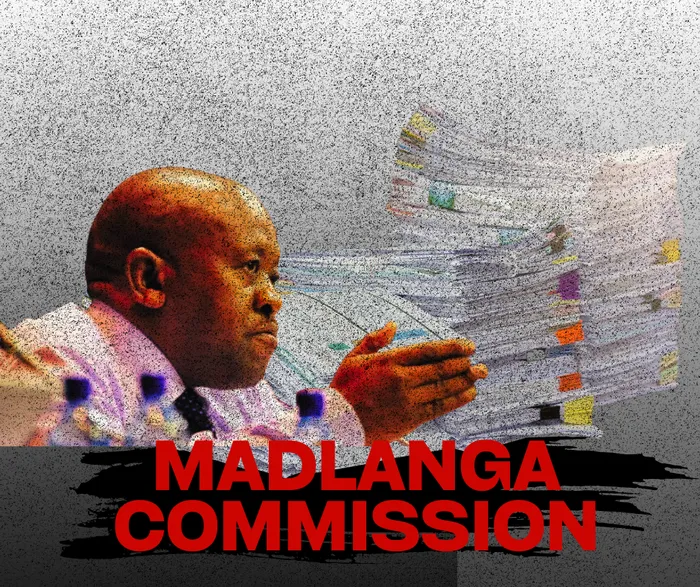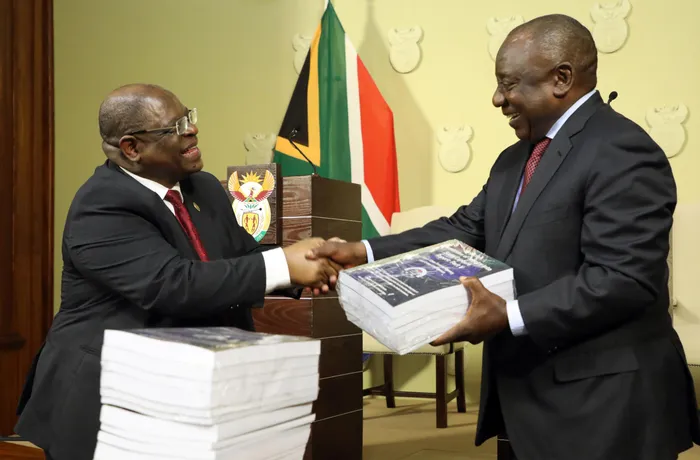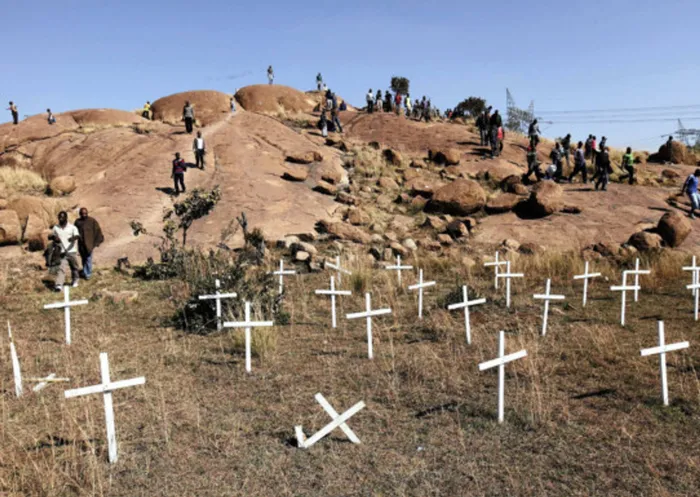Another Failed Commission? Madlanga haunted by the ghosts of Zondo, Seriti and Marikana

South Africa has been here before—shiny commissions, thick reports, bold promises. Now, the Madlanga Commission faces the same question that haunts all its predecessors: will justice finally be done, or will it be yet another smokescreen?
Image: IOL Graphics
South Africa has been here before—shiny commissions, thick reports, bold promises. Now, the Madlanga Commission faces the same question that haunts all its predecessors: will justice finally be done, or will it be yet another smokescreen?
Established in July 2025, the Madlanga Commission of Inquiry was tasked with investigating serious allegations of political interference, criminality, and corruption in the criminal justice system—particularly the police, prosecution, and intelligence services.
The move followed explosive claims by KZN Police Commissioner Lt-Gen. Nhlanhla Mkhwanazi, who accused political leaders and senior police officials of colluding with criminal syndicates.
This included the Minister Senzo Mchunu and the Deputy Police Commissioner, Shadrack Sibiya.
But from day one, the commission has stumbled.
Hearings were delayed due to missing ICT infrastructure and procurement failures—fuelling fears of a deliberate cover-up. For many South Africans, this déjà vu cuts deep.
The Madlanga commission is expected to begin its first public hearings on September 17 in Pretoria. Mkhwanazi is likely to be the first witness to testify before the commission.

Former Chief Justice and State Capture Commission Chair Raymond Zondo hands over the Commission's final report report to President Cyril Ramaphosa in Pretoria on June 22, 2022.
Image: Oupa Mokoena/African News Agency(ANA)
Haunted by the Past: Zondo, Seriti, Marikana commissions
The Zondo Commission, formally established in 2018, unearthed sweeping evidence of state capture, fraud and corruption under Jacob Zuma’s presidency.
Its final reports—running thousands of pages—named ministers, CEOs, and SOEs involved in looting the state.
Yet, three years later, most findings gather dust. Few have been prosecuted.
Political analyst Professor Ntsikelelo Breakfast told IOL, “The revelations of the Zondo Commission are still gathering dust—no accountability.”
The Seriti Commission into the 1999 Arms Deal was declared a “whitewash” after it exonerated key political and business figures.
In 2019, a High Court overturned its findings, saying the inquiry failed to test evidence or pursue the truth.

The Marikana commission of inquiry failed to deliver justice for victims, says the Socio - Economic Rights Institute
Image: File
The Marikana Commission, established after the police massacre of 34 mineworkers in 2012, recommended prosecutions and police reforms. Yet 13 years later, most families are still waiting for justice.
Will Madlanga Commission be any different?
Professor Breakfast believes the Madlanga Commission may follow the same tragic script:
“They failed because reports were out but nothing was done. The president had to appear to act—so a commission was set up. It will probably single out one or two people to divert attention.”
Lawyers for Human Rights attorney Mametlwe Sebei was even more blunt: “Countless commissions, but none have done anything tangible for the public. The Zondo Commission made damning revelations—yet no one has been held accountable. I doubt this will be different.”
Sebei also noted that commissions rarely deal with the root causes of corruption, arguing they’re structured in a way that protects the powerful. “They do not really deal with the real matter—they just find something to distract, while shielding those implicated.”
"SAPS Is the Syndicate" – GIWUSA
The General Industries Workers Union of South Africa (GIWUSA) welcomed Mkhwanazi’s allegations, calling them a confirmation of what the working class already knows.
“Mkhwanazi lifted the veil not on an anomaly, but on the systemic, organised criminal character of SAPS,” the union said in a statement.
“From roadblock extortion to criminalising poverty—this is not law enforcement. This is an institution preying on the poor while protecting the elite.”
Dusty reports, forgotten Justice?
Observers say that unless this commission delivers prosecutions and real reform, it may simply join the graveyard of failed inquiries that have defined South African democracy.
kamogelo.moichela@iol.co.za
IOL Politics